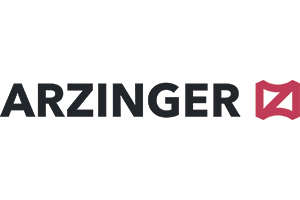Since 1 January 2021 three significant changes have been in effect in relation to the practice regarding the Swiss tax treatment of employee benefit plans. The Swiss Federal Tax Administration stipulated this practice update in its circular letter No. 37 on employee benefit plans.
In the absence of a fair market value, the corporate valuation must be carried out using a suitable and recognised method and the (tax-relevant) fair market value can be determined in the same way as for wealth tax purposes
As from 1 January 2021, non-listed companies implementing an employee benefit plan will be valued based on the so-called practitioner method ((2x earnings value + 1x net asset value) divided by 3). Depending on the canton, other assessment approaches may also be applicable for companies that meet the qualifications of start-ups. Irrespective of this change in practice, companies can still apply a valuation using their own methodology (eg an EBITDA multiple), provided that (i) the formula plausibly reflects the business model, (ii) it is comprehensible and (iii) it is accepted in advance by the relevant cantonal tax authorities as ‘suitable and approved’. It is advisable to ensure the acceptance of a separate valuation formula by means of an advance tax ruling.
National-wide possibility of a tax-free capital gain after a five-year holding period
As a general rule, both the purchase of employee participations may be subject to Swiss individual income tax. That is, the difference between both the purchase price paid by the employee (if any) and the fair market value constitutes an employee-related benefit and is subject to tax. The same applies, if there is a surplus profit in the event of a sale; ie if the sale price exceeds the value of the employee participation based on the same formula as at the time of allocation and the sales price. The surplus benefit is generally treated as taxable employment related benefit. However, as of 1 January 2021, a holding period applies to the taxation of this surplus benefit:
What previously applied only in the Canton of Zurich now (since 1 January 2021) applies throughout Switzerland. After a five-year holding period, any surplus profit will no longer be subject to Swiss individual income tax. Thus, the entire difference between the value at the time of granting the shares and the latter sales price qualifies as a tax-free capital gain, save for income taxation of violations of an eventual blocking-period in years n6-n10.
This tax exemption for capital gains in principle only applies for sales to third parties. The five-year holding period remains irrelevant for re-sales to the company or its shareholders, and any surplus profit is subject to income tax and social security contributions in the cantons in question.
The change of practice will undoubtedly apply to new employee benefit plans throughout Switzerland. In a perfect world, the same rules should also be applicable to existing employee benefit plans, where employee participations were allocated before 2021. Unfortunately – as a result of the Swiss federal system – this is not (yet) the case. Depending on the canton, there are currently different opinions as to how the new nationally applicable five-year holding period shall apply to existing employee benefit plans. Companies affected will most likely not be able to avoid getting in touch with the relevant cantonal tax authorities to resolve this ambiguity and to be on the safe side.
Shares acquired at third-party conditions or subscribed for during incorporation do not qualify as employee shares
If employees acquire shares of the company at the same terms and conditions as those applicable to third-party investors, their shares do not qualify as employee shares. The same applies to shares acquired by shareholders (so-called ‘founding shareholders’) in the course of the incorporation of the company. Future capital gains realised on such sales are therefore entirely tax-free, irrespective of whether the sale is made to third parties, to the company or to shareholders. However, this requires that no discount due to the blocking period is granted when allocating the shares.
However, other aspects of the tax authorities’ intervention against the tax-free capital gain, such as the qualification of the shares as business assets or the qualification of the employee or founding shareholder as a professional securities dealer, must be considered.
The changes of the practice are highly welcomed. Nevertheless, the effects on existing employee share plans are ambiguous owing to the lack of clear transitional provisions. It is therefore worthwhile for affected employees and employers to consult their tax adviser as early as possible.
















